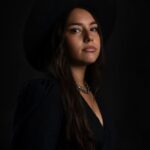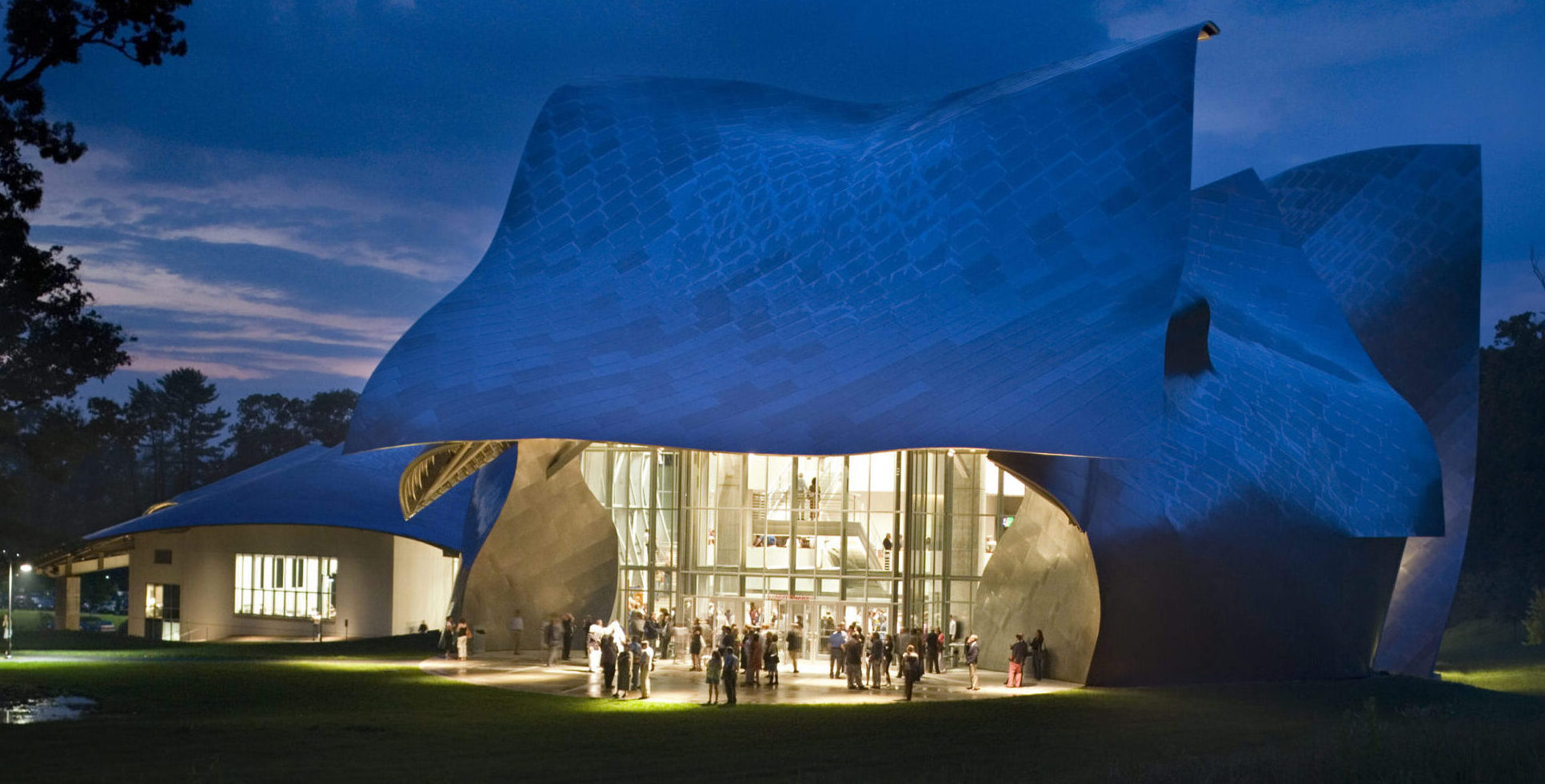LAB Commission
Agúyabskuyela
Kite
May 4, 2023
LAB Commission
May 4, 2023


Sharing cakes at funeral wakes is a practice common amongst the Lakȟóta people; often, these cakes have an image of the deceased imprinted in the frosting. Kite, an Oglála Lakȟóta performance artist and composer, explores this tradition in a performance in which she decorates funerary cakes made from local indigenous ingredients while speaking with friends, relatives, and elders about traditions, kin, land, and species they have lost. As we face death in the world, Kite hopes to turn towards protocols for mourning to process the death of beings, human and non-human. Cake and coffee will be served.
This performance will take place at the VFW in Red Hook, located at 30 Elizabeth Street. This is about a 10-minute drive from the Fisher Center, so please plan accordingly. There will be a box office and will call stationed at the VFW, so no need to come to the Fisher Center first.
A shuttle from the Fisher Center to the VFW will leave from the marquee at the Sosnoff Front lawn promptly 30 minutes before the performance begins. Please look for the signs directing you to shuttle pick-up. It will return to the Fisher Center ~10 minutes after the performance ends. The shuttle will make no other stops. Shuttle space is limited and reserved for those with no other option for getting to the performance space.
May 4 • Corey Stover
May 5 • Lou Cornum
May 6 • Jolene K. Rickard
May 7 • Alisha Wormsley
Kite Lead Artist
Bradley Dry Recipe Creation
Sweet Maresa’s Baker
Laura Hirschberg Production Stage Manager
Kite aka Suzanne Kite MFA ’18 is an Oglála Lakȟóta performance artist, visual artist, and composer raised in Southern California, with a BFA from CalArts in music composition, an MFA from Bard College’s Milton Avery Graduate School, and is a Ph.D. candidate at Concordia University for the forthcoming dissertation, sound and video work, and interactive installation Hél čhaŋkú kiŋ ȟpáye (There lies the road). Kite’s scholarship and practice explore contemporary Lakota ontology through research/creation, computational media, and performance. Kite often works in collaboration, especially with family and community members. Her art practice includes developing Machine Learning and compositional systems for body interface movement performances, interactive and static sculpture, immersive video and sound installations, poetry and experimental lectures, experimental video, as well as co-running the experimental electronic imprint, Unheard Records. Her work has been featured in various publications, including the American Indian Culture and Research Journal, the Journal of Design and Science (MIT Press), with the award-winning article, “Making Kin with Machines”, and the sculpture Ínyan Iyé (Telling Rock) (2019) was featured on the cover of Canadian Art. kitekitekitekite.com
Corey Stover (Sungmanitu Ska), Lakota Artist and Educator, descends from Lakota, Northern Cheyenne, and European ancestry. He resides on the Pine Ridge Indian Reservation in South Dakota and works as the Director of Vocational Education for Oglala Lakota College. Focusing on enhancing the lives of community members through award-winning Vocational Education Programs. Corey is a Powwow dancer and enrolled member of the Oglala Lakota Sioux Tribe. He holds a Bachelor’s degree in Lakota Studies, emphasizing Indian Law. He also holds Associates degrees in Lakota Studies and Tribal Law. Along with his career, Corey is a self-taught traditional Lakota artist who focuses on traditional Lakota beadwork and designs, artwork, and Powwow dance regalia. Corey is well-versed and knowledgeable of the Lakota culture, language, and way of life. His great-great Grandmother is a survivor of the Wounded Knee Massacre and he is humbly honored to carry on her legacy. Wopila Tanka
Lou Cornum is a writer, scholar, and member of the Navajo Nation, also a descendant of Irish-Scottish settlers. They were born in Arizona in 1989 and have spent the past fifteen years mostly in New York City. As an assistant professor of Native American Studies at NYU, they teach and research a range of topics from science fiction, Indigenous intellectual histories, and radioactive geographies. Their public writing can be found in venues such as Art in America, Triple Canopy, and Pinko: A Magazine of Gay Communism.
Dr. Jolene Rickard is a visual historian, artist, and curator interested in the intersection of Indigenous knowledge and contemporary art, materiality, and ecocriticism with an emphasis on Hodinöhsö:ni aesthetics. A selection of publications includes Diversifying Sovereignty and the Reception of Indigenous Art, Art Journal 76, no. 2 (2017), Aesthetics, Violence and Indigeneity, Public 27, no. 54 (Winter 2016), Arts of Dispossession, in From Tierra del Fuego to the Arctic: Landscape Painting in the Americas, Art Gallery of Ontario (2015), The Emergence of Global Indigenous Art, Sakahán, National Gallery of Canada (2013), and Visualizing Sovereignty in the Time of Biometric Sensors, The South Atlantic Quarterly: Sovereignty, Indigeneity, and the Law, 110:2 (2011). Recent exhibitions include the Minneapolis Institute of Arts national exhibition, Hearts of Our People: Native Women Artists, 2019-2021, Crystal Bridges Museum of Art, Art For a New Understanding: Native Voices, 1950s to Now, 2018-2020. She co-curated two of the four inaugural exhibitions of the National Museum of the American Indian (2004-2014). Jolene is on the editorial board of American Art, a founding board member for the Otsego Institute for Native American Art, and an advisor to GRASAC-The Great Lakes Alliance for the Study of Aboriginal Arts and Culture. Jolene is a 2020 Fulbright Research Scholar at McMaster University, ON, CA, an Associate Professor in the departments of History of Art and Art, and the former Director of the American Indian and Indigenous Studies Program 2008-2020 (AIISP) at Cornell University, Ithaca, NY. Jolene is from the Tuscarora Nation (Turtle Clan), Hodinöhsö:ni Confederacy.
Alisha B. Wormsley (Pittsburgh, PA, USA) is an interdisciplinary artist and cultural producer. Her work contributes to the imagining of the future of arts, science, and technology through the black womxn lens, challenging contemporary views of modern American life through whichever medium she feels is the best form of expression, creating an object, a sculpture, a billboard, performance, or film and thrives in collaboration. Recent exhibitions, projects, and public art commissions in partnership with; the Oakland Museum, VCUArts Qatar, Speed Museum, Southbank Arts London, Times Square Arts, and the Carnegie Museum of Art. Wormsley’s project, There Are Black People In the Future, gives mini-grants to open up discourse around displacement and gentrification and was also awarded a fellowship with Monument Lab and the Goethe Institute. In 2020, Wormsley launched a Residency for Black artists who mother, called Sibyls Shrine, has received two years of support from the Heinz Endowments. She is a 2022 Guggenheim Fellow in Fine Arts, an Awardee of the Sundance Interdisciplinary grant, and the Carol Brown Achievement award, among others. Wormsley has an MFA in Film and Video from Bard College and currently is a Presidential Postdoctoral Research Fellow at Carnegie Mellon University.
Nearby villages and towns in the Hudson Valley boast a large selection of restaurants, as well as a variety of hotels, motels, inns, and bed & breakfasts.
Eat & StayOur driving principle is to operate with a duty of care for all our community—artists, audiences, and staff alike.
In order to share performances with as many audience members as possible, we ask that you read our Health and Safety Protocols on the FAQs page and commit to participating in our community of care.
Read the FAQs and Safety ProtocolsSupport the creation of innovative work by adventurous artists.
